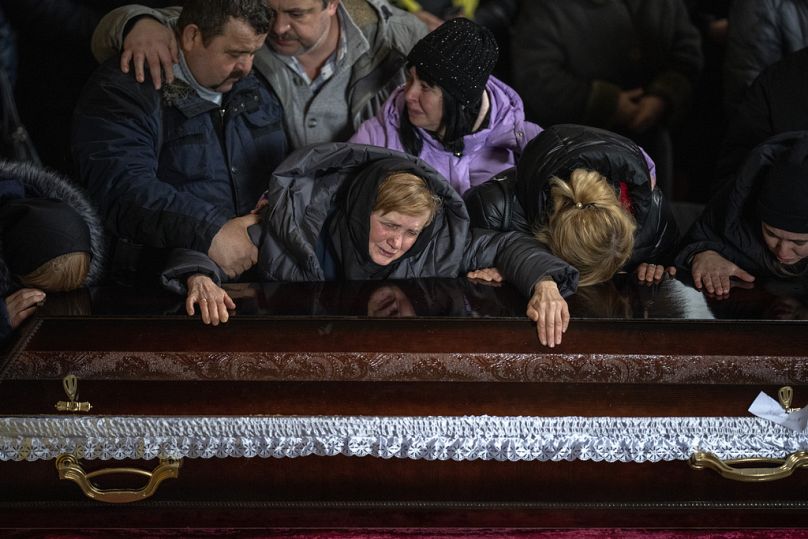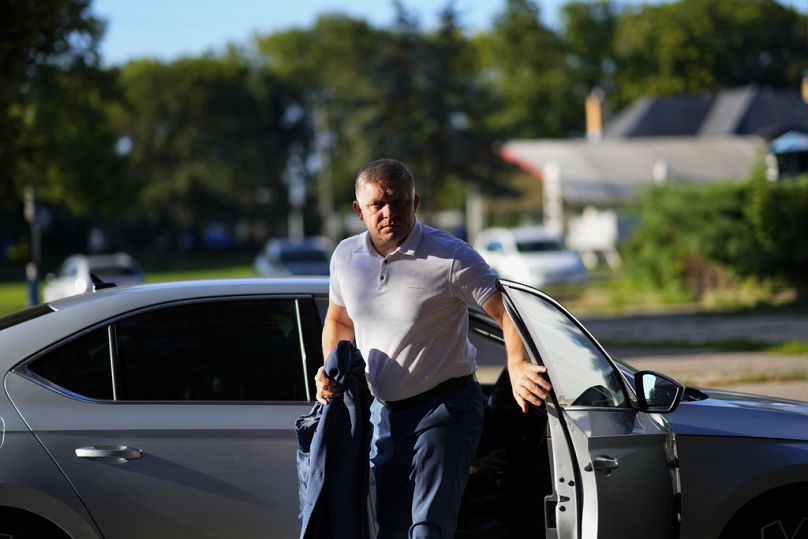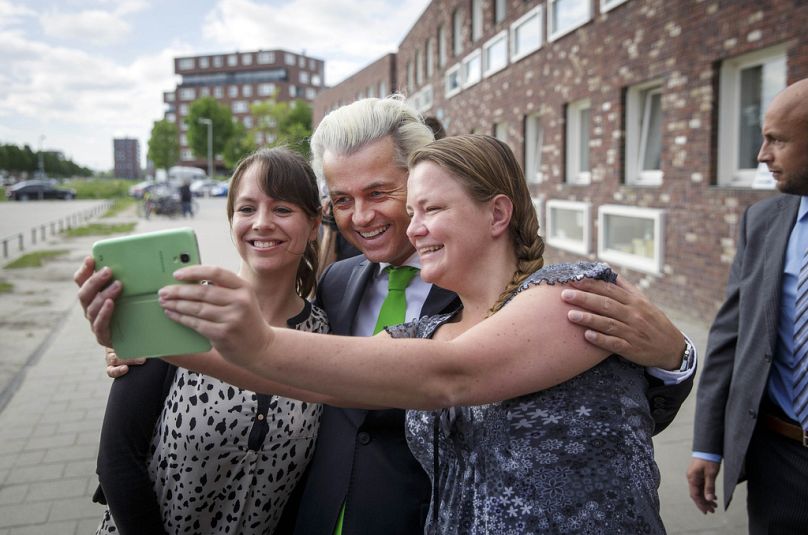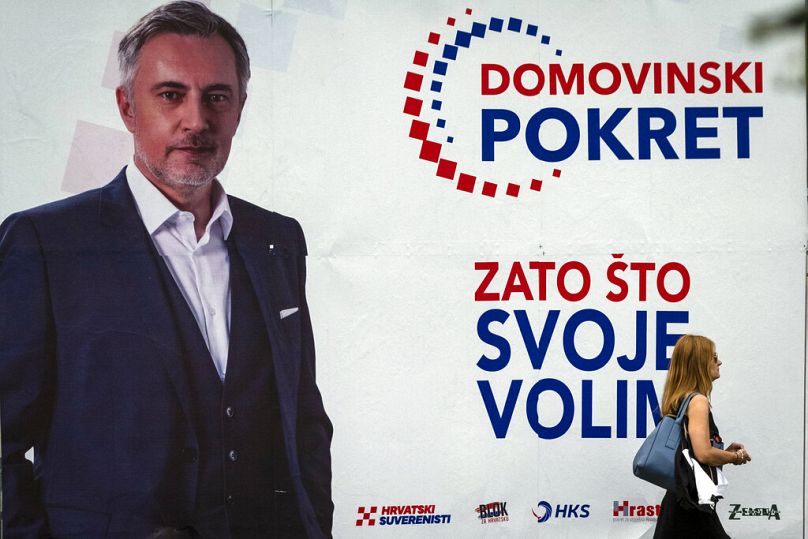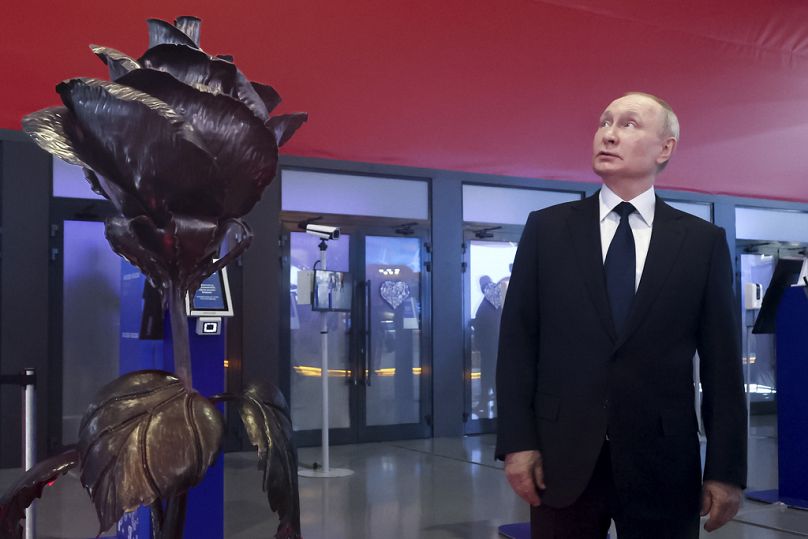This year's election campaigns have shaken the status quo, and European voters will be anxious to see what transpires during the 2024 election season. The stakes could not be higher, Mark Temnycky writes.
When Russia's full-scale invasion began in February 2022, many were sceptical of Ukraine’s success. “Ukraine probably cannot hold off Russia forever,” read one headline. “If Kharkiv falls, Ukraine falls,” stated another headline. “Kyiv could fall to Russia within days,” said a third.
Given these assumptions, Western countries hesitated to provide Ukraine with defence assistance.
They were fearful that, if Ukraine failed, Western weapons would fall into the hands of the Russians, similar to what occurred during the withdrawal of Afghanistan in 2021.
Meanwhile, leaked documents from the Russian Federation showed that the Kremlin believed it could take the Ukrainian capital Kyiv in a few days, and the entire country within a month. In short, the situation looked grim.
Nearly two years later, Ukrainians have proved their doubters wrong. To date, Ukrainians have successfully defended their capital, and they forced Russian soldiers out of the centre of the country.
Ukraine also reclaimed more than half of the territory occupied by Russia, making “steady gains in a set-piece battle against a heavily entrenched force” of fortified Russian soldiers in the south and east. While Russian troops still occupy one-fifth of Ukrainian territory, Ukraine’s success on the battlefield should not be minimised.
Russia's war in Ukraine is not an action movie
Observers of Russia's war in Ukraine should also be reminded that Ukrainian advancements are not a movie or a video game.
Despite a desire for instant success, the war will not be won quickly. Time and precision are required to ensure victory, and it's worth remembering that thousands of men and women have already died protecting their country.
Despite these successes, the same critics who initially said that Ukraine would fall within a matter of days are now saying that the war is taking too long.
They argue that Ukraine’s counteroffensive has failed because Ukrainians did not liberate their entire country over the past two years, including Crimea and the Donbas.
Some critics also still believe that Ukraine has “no chance” of defeating the Russian forces in the south and east.
In these circles, the consensus is that Ukraine should be forced into peace talks with Russia, and that Ukraine should no longer be assisted in its defence efforts.
Most alarmingly, this argument seems to be spreading like wildfire.
Delayed assistance and blaming the war on others
Some warning signs are already here in Europe. For example, over the past two years, Hungary has continuously blocked military aid and humanitarian packages from the European Union to Ukraine.
Budapest has pushed the EU to cut back on its aid spending to Ukraine. Most recently, Hungarian officials stated that they will continue to block aid to the Eastern European state as Hungary requires “further reassurances [from Ukraine] before it would change its approach to Ukraine in any international settings.”
These attempts to stop future EU assistance packages to Kyiv include trying to halt Ukraine’s potential accession discussions with the EU and NATO.
These continuous roadblocks have delayed EU assistance from arriving in Ukraine. Without the necessary tools to succeed on the battlefield, it has impacted Ukraine’s timeline to force the Russians out as quickly as possible.
Hungary is not alone in these antics. Earlier this year, Slovakia held its parliamentary elections, where a populist party, Smer, won.
Smer, which is headed by a pro-Russian politician, Robert Fico, has now declared that it will stop sending defence aid to Ukraine. The party also “rejects NATO’s military support for Ukraine”. The party has previously blamed the 2022 Russian invasion of Ukraine on American manufacturing companies, stating that they support warmongering.
Like the Hungarian officials from Victor Orbán’s party, Fidesz, Fico and his Slovakian group believe that too much aid has been sent to Ukraine.
Populists and the far-right are gaining ground
Finally, like Slovakia, the Dutch also had an election that ended with alarming results. In November, the Netherlands held a general election. In a surprising turn of events, Geert Wilders and his far-right group the Party for Freedom won.
The party holds anti-EU and anti-Ukraine sentiments. It has also pledged to stop sending aid to Kyiv, although it remains to be seen if they will follow this plan.
The developments in Hungary, Slovakia, and now the Netherlands are no accident.
Simultaneously, similar movements are also spreading in countries with larger economies, such as France, Italy, and Spain, suggesting a pattern is growing throughout Europe.
According to a Pew Research Center study, populist groups and far-right movements are indeed gaining ground, winning "winning larger shares of the vote in recent legislative elections” across the continent. Why is this the case?
Heads will turn
Nationalist and anti-establishment rhetoric, as well as opposition to the war in Ukraine, is growing throughout Europe. Millions of citizens across the continent are concerned about the economy.
Others are discontent with their current leaders of government, and these voters are demanding new and stronger leadership. Some have even opted to improve their relationships with Moscow, believing that sanctions on Russia brought nothing but hardship.
It is important to note, however, that there are some outliers in this trend. For example, French President Emmanuel Macron successfully defeated far-right candidate Marine Le Pen during the presidential election last year.
Meanwhile, the opposition movement in Poland successfully defeated populist groups during the October general election. This suggests that, while the far-right is gaining ground, it can still be defeated.
Now, heads will turn to the various elections across Europe in 2024. Throughout the year, Finland, Slovakia, Lithuania, Iceland, and Moldova will hold their presidential elections.
Additionally, Portugal, Belgium, Croatia, Austria, Georgia, Romania, and the United Kingdom will have parliamentary elections.
Finally, the European Parliament will hold its elections in June. Based on the current political trends, some experts predict that far-right groups are set to perform well in most of these, while polls suggest right-wing and Eurosceptic parties might surge.
A different European landscape ahead?
If these far-right movements win in their respective elections, this would result in a very different European landscape.
The leaders and politicians of these political parties would look to turn inward, where they would hope to adopt isolationist policies in opposition to the EU.
Furthermore, like Slovakia and the Netherlands, they would seek to reduce or halt aid to Ukraine.
In addition, a number of European far-right actors have called for the warming of relations with Russia, meaning that they would disregard the fact that Moscow started the war as they favour peace on the European continent instead of justice.
Such policies would be dangerous for the European continent. Pursuing options to enhance relations with the Kremlin would signal that Europeans are ready to forgive Russia for its invasion of Ukraine, forgetting the atrocities Russian troops committed.
It would also set a dangerous precedent, signalling to Russia that it could willfully invade and annex the territory of neighbouring states without severe consequences.
This would only encourage other autocratic rulers across the world to act in similar ways and lead to additional conflicts and more bloodshed across the globe.
It feels like all-or-nothing
Fortunately, it is not all doom and gloom. According to a recent survey conducted by the European Parliament, 72% of participants believed that their homelands had “benefited from EU membership”. In addition, 70% of EU citizens think that "EU actions have an impact on their daily life”.
These figures do not suggest that most Europeans have anti-European sentiments. Instead, it indicates that they support the European collective.
Meanwhile, a recent Chatham House study also suggests that a majority of Europeans favour “policies that support the Ukrainian cause, while not supporting policies that would hinder the Ukrainian war effort," and remain committed to taking a tough stance on Russia.
Overall, times may be changing. European citizens are increasingly becoming frustrated with their leaders and the economy, and they are hoping for changes in the new year.
This is allowing far-right groups to succeed. And as they are gaining ground across the continent, anti-European and anti-Ukraine sentiments are growing.
This year's election campaigns have shaken the status quo, and European voters will be anxious to see what transpires during the 2024 election season. The stakes could not be higher.
Mark Temnycky is a freelance journalist covering Eurasian affairs and a nonresident fellow at the Atlantic Council’s Eurasia Center.
At Euronews, we believe all views matter. Contact us at view@euronews.com to send pitches or submissions and be part of the conversation.












